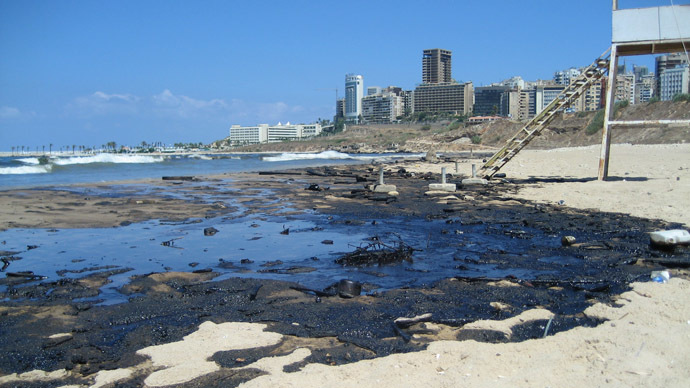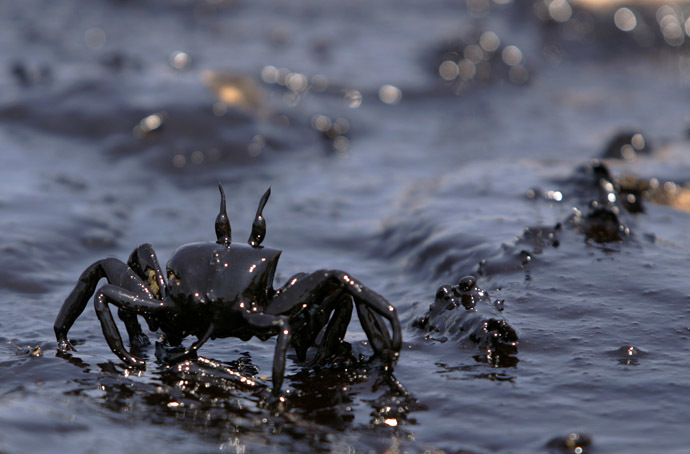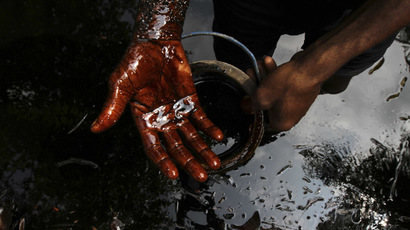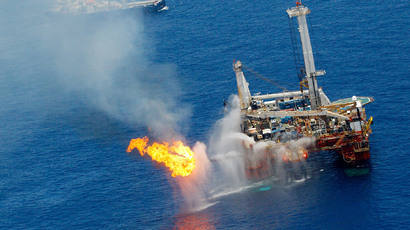UN urges Israel to repay Lebanon $850mn in oil spill damages

The UN General Assembly has nearly unanimously approved a resolution urging Israel to pay Lebanon some $850mn compensation to cover the clean-up cost of an oil spill caused in 2006 by the IDF jets attack on oil storage tanks during the war with Hezbollah.
The UNGA assembly voted 170-6 in favor of the non-binding resolution. Israel, the United States, Canada, Australia, Micronesia and Marshall Islands voted against the motion.
Taking into account the 1992 Rio Declaration on Environment and Development, which in principle requires the polluter to pay environmental damage costs, the assembly found Israel guilty of the July 15, 2006 environmental disaster.
The disaster was caused by the Israeli Air Force strike on the oil storage tanks in the direct vicinity of the Jiyeh electric power plant in Lebanon. As a result an oil slick covered the Lebanese coastline entirely, stretching all the way to the Syrian coastline.
The assembly decision follows the assessment report by Secretary-General Ban Ki-moon which stipulates the value of damage to be $856.4 million. Now the Assembly is asking Israel to provide “prompt and adequate compensation.”

In addition, the assembly wants the UN and other institutions to conduct a further study to identify the full extent of the sustained environmental damage suffered by neighboring countries.
The resolution notes that the UN chief expressed “grave concern at the lack of any acknowledgment on the part of the government of Israel of its responsibilities vis-a-vis reparations and compensation” to Lebanon and Syria for the oil spill.
Israel's UN Mission claimed that the resolution is biased against Israel.
“This resolution has long outlived the effects of the oil slick, and serves no purpose other than to contribute to institutionalizing an anti-Israel agenda at the UN,” Israel said, adding that at the time they “immediately responded to the oil slick incident by cooperating closely with the United Nations.”
Lebanon's Ambassador Nawaf Salam meanwhile called the resolution a “major progress.”
“We affirm that Lebanon will continue to mobilize all resources and resort to all legal means to see that this resolution is fully implemented, and that the specified compensation is paid promptly,” Salam said.














